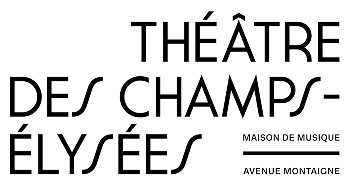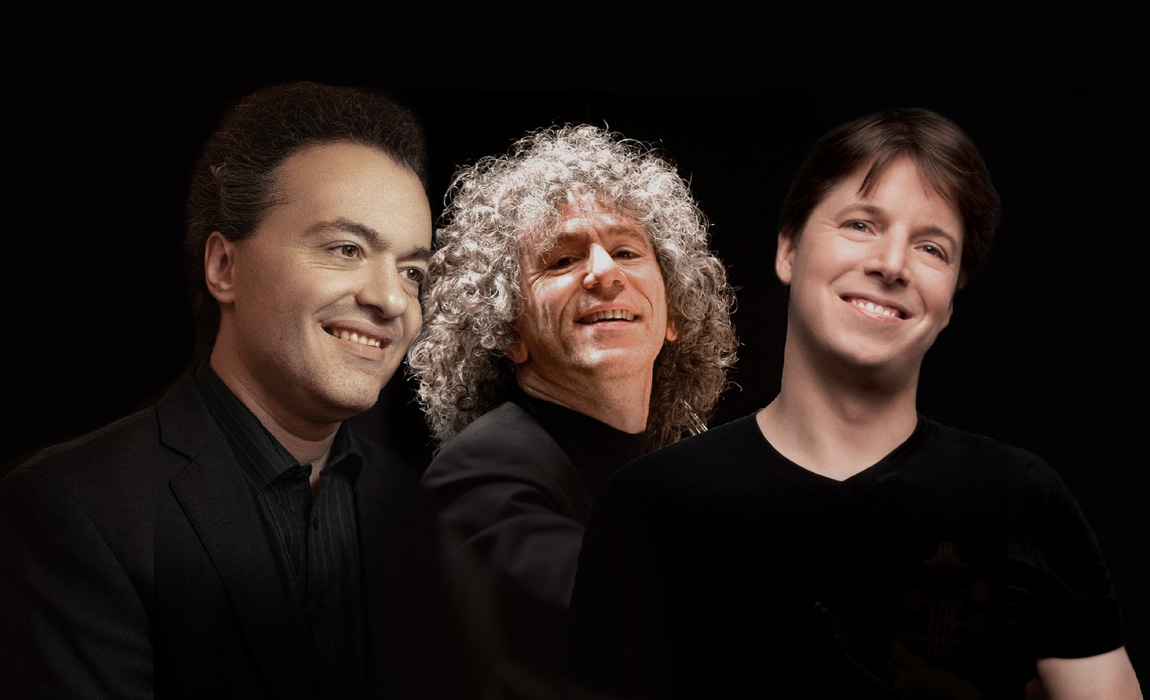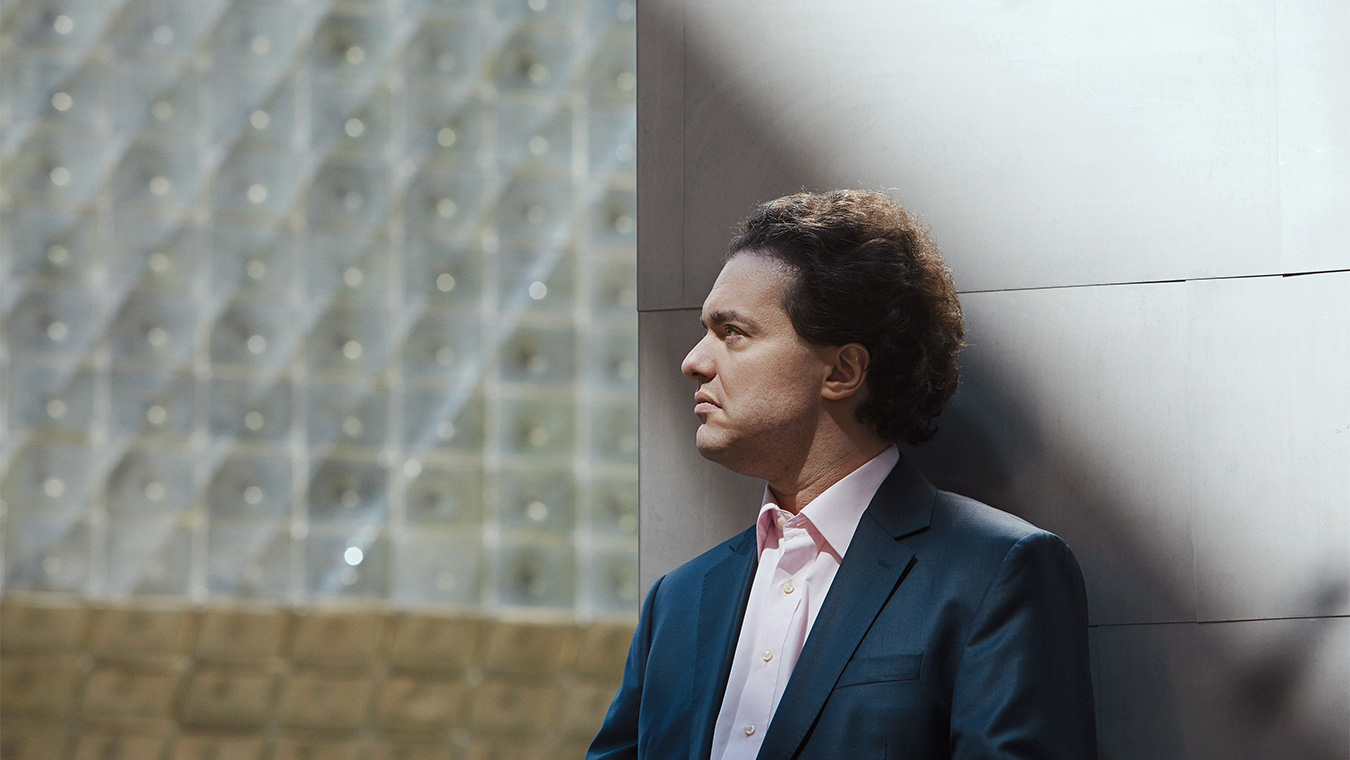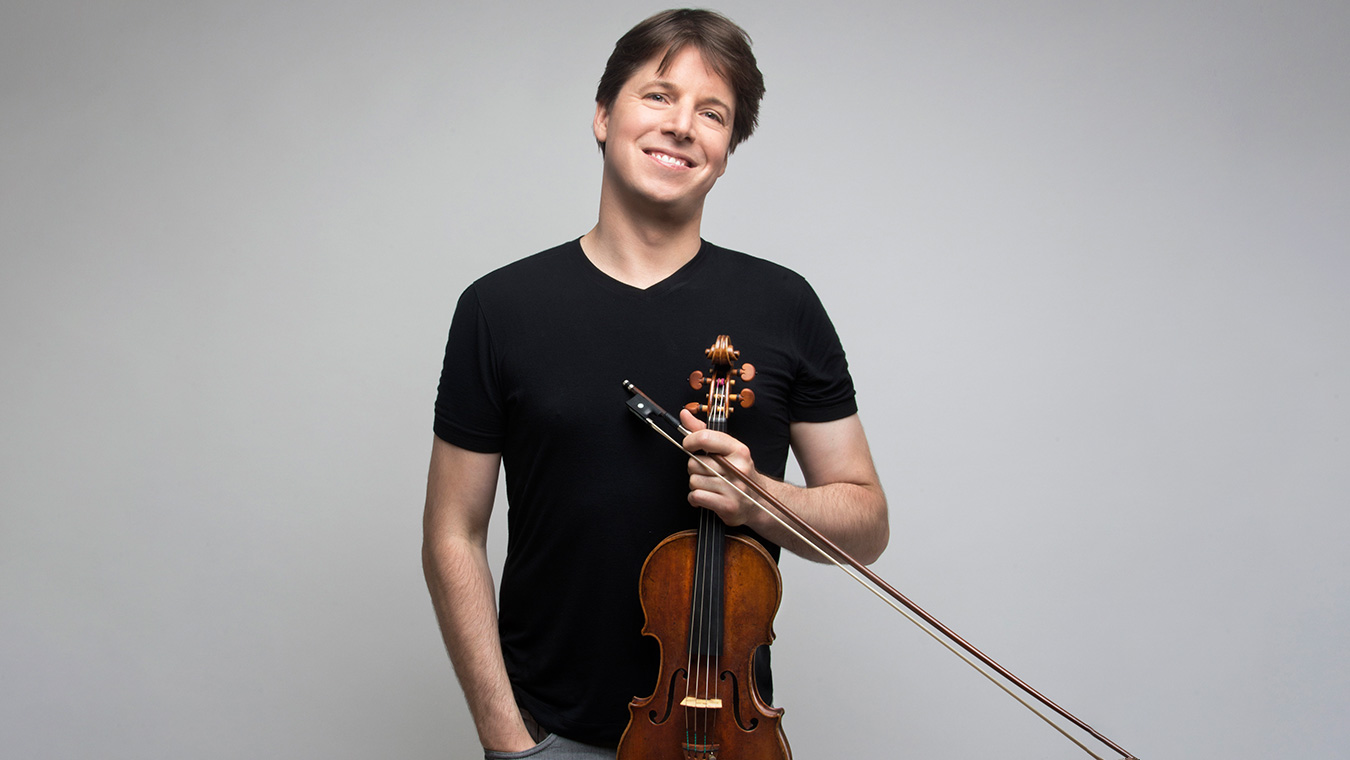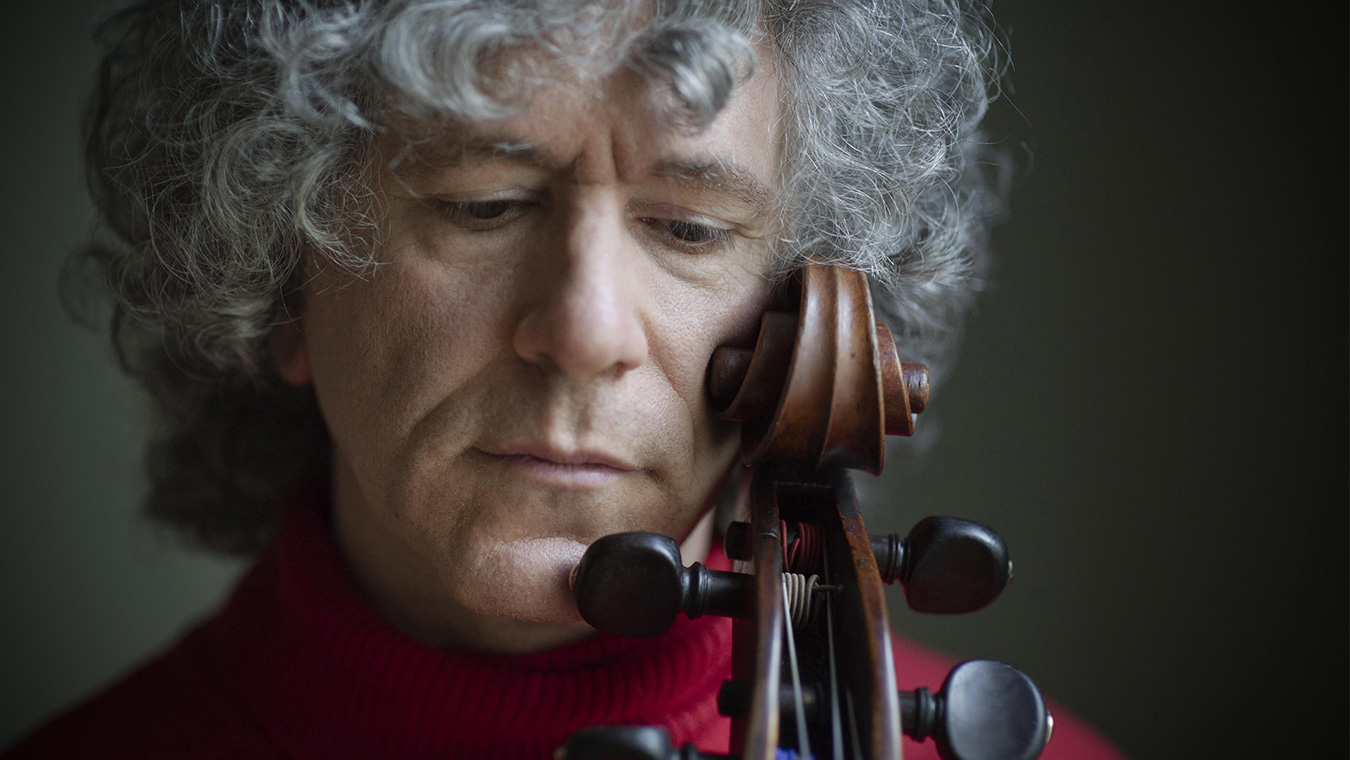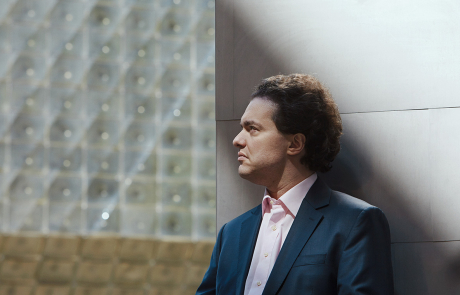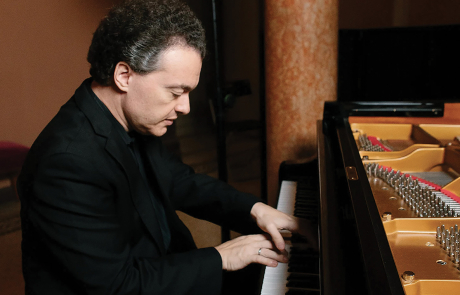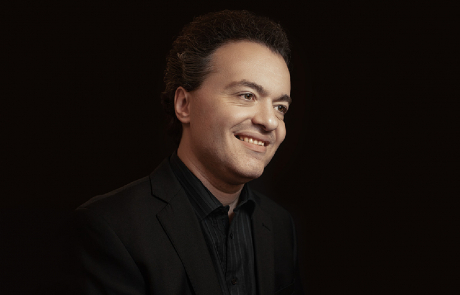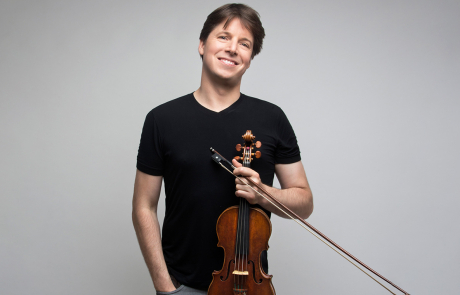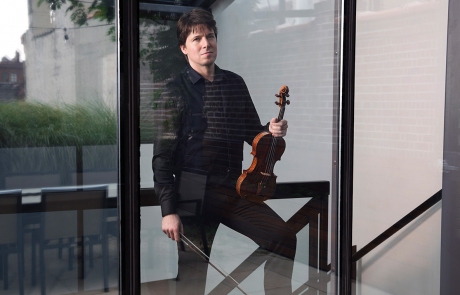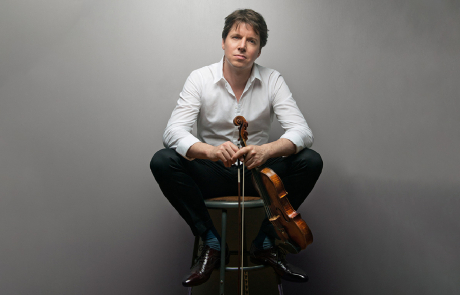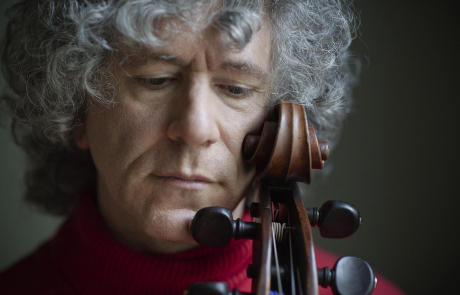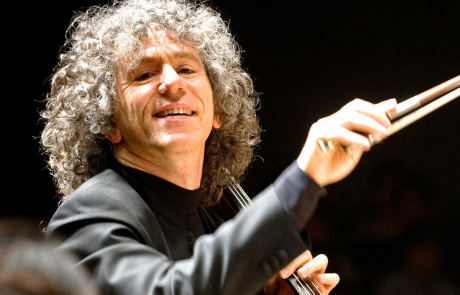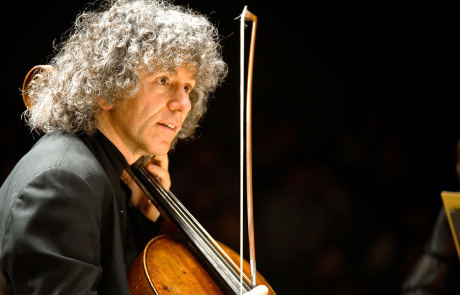EVGENY KISSIN
JOSHUA BELL
STEVEN ISSERLIS
Chamber music
Piano, violin, cello trio
Solomon Rosowsky
Fantastic Dance for violin, cello and piano, Op. 6
Dmitri Chostakovitch
Piano Trio No. 2 in E minor, Op. 67
—
Piotr Ilitch Tchaïkovski
Piano Trio in A minor “In Memory of a Great Artist”
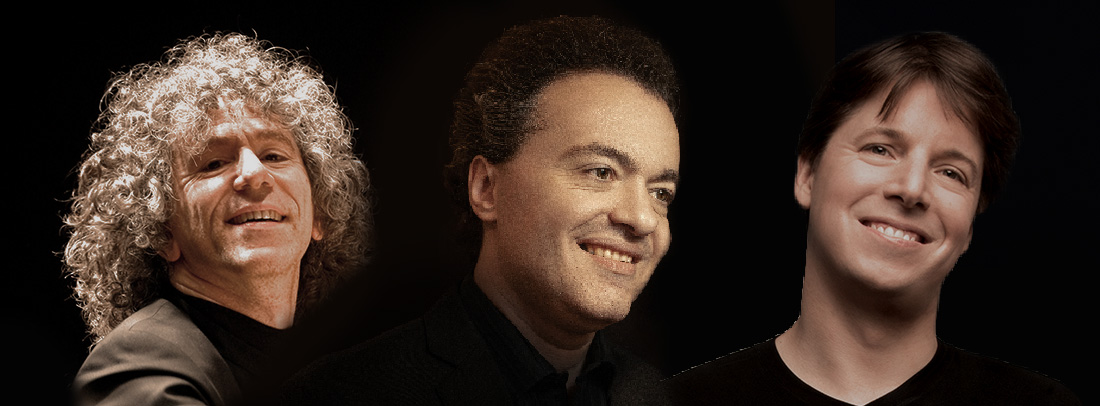
ABOUT THE SHOW
Evgeny Kissin, Joshua Bell, and Steven Isserlis come together for an exceptional encounter on the stage of the Théâtre des Champs-Élysées. Three legends of classical music, each with a singular voice, unite in a chamber program of rare intensity featuring works by Rosowsky, Shostakovich, and Tchaikovsky.
Evgeny Kissin, whose dazzling virtuosity has captivated audiences since his prodigious debut, displays a pianistic technique of extraordinary finesse. His playing is marked by the precision of his phrasing and the depth of his interpretations. Beyond his virtuosity, he brings a refined sensuality to each work—an expressive subtlety that has become his hallmark. Joshua Bell, a violinist of rare expressive power, embodies the essence of the Romantic violin. His instrument alternates between brilliance and turbulence, lending each phrase a unique emotional resonance. His impeccable phrasing blends technical mastery with human warmth, enriching every performance. Steven Isserlis’s cello, with its rich and powerful tone and infinitely nuanced range, reveals a profound musical sensitivity. Each phrase unfolds with a near-vocal clarity, drawing out a deep, poetic voice imbued with wisdom. The concert program follows a striking arc. Solomon Rosowsky’s Fantastishe Tanz (Fantastic Dance), composed in 1907, opens with rhythmic vigor and dynamic energy. Drawing on Jewish folk influences and a modern musical structure, the piece plays with contrasts—between brilliance and lightness—while maintaining a delicate harmonic language suited to its dance-like nature. Next is 67 Shostakovich’s Piano Trio No. 2 in E minor, Op. 67, composed in 1944.One of his most powerful chamber works, the trio was written during a time of war but transcends mere depiction of tragedy. It moves between tense, somber episodes and moments of virtuosic brilliance, portraying an inner conflict between despair and a drive to resist. Finally, Tchaikovsky’s Trio in A minor, written in 1882 as a tribute to his friend Nikolai Rubinstein, immerses the audience in the sorrow of farewell. The work, steeped in grief and nostalgia, unfolds over three movements: a dark, brooding introduction, a lyrical central section, and a final coda of quiet resolution. The trio stands out for its melodic richness and expressive depth. Three instruments. Three legends.
Three voices united in one breath—for a rare and unforgettable musical experience.
OTHER SHOWS


